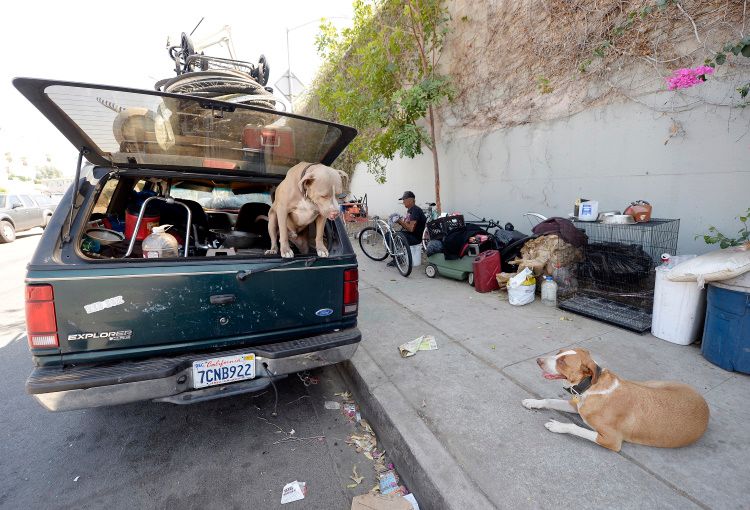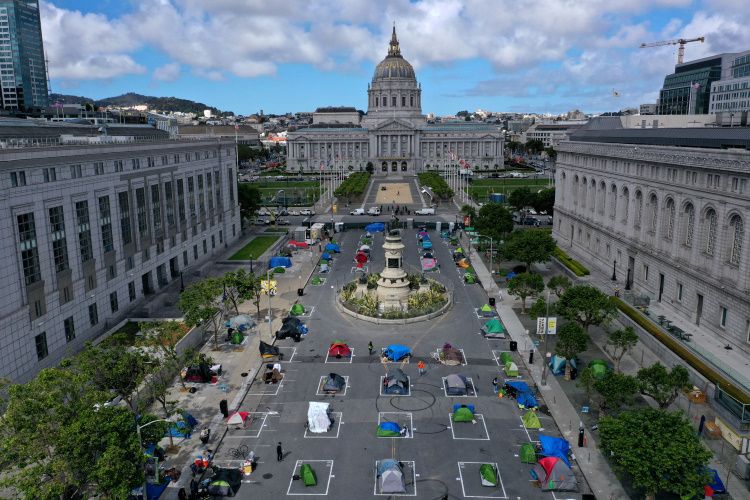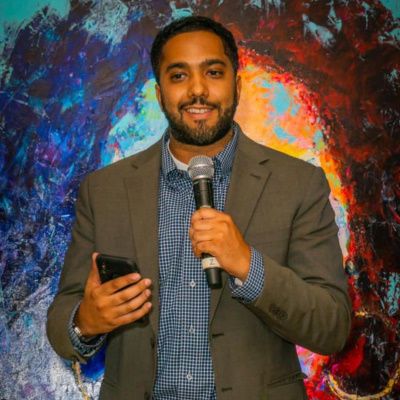During the beginning of the pandemic this past spring, I read several articles reporting decisions by officials in San Francisco and Alameda counties to lease thousands of vacant hotel rooms to prevent the spread of COVID-19 among the homeless by providing some of most vulnerable among them with an alternative to crowded shelters, encampments, and their motor vehicles.
This initiative resulted in homeless individuals and families potentially living in some of San Francisco’s poshest hotels — though some of this "alternative housing" was reserved only for healthcare workers needing quarantine space, and it's unclear which hotels actually ended up being put to use as homeless shelters due to confidentiality agreements.
I must concede that I experienced some momentary envy having paid mightily for nightly accommodations at some of these establishments. But according to city data, some of these leased hotel rooms have been left vacant for lack of demand — about 140 out of a total of 2,500 as of last count, and meanwhile there are least 6,000 more homeless people still living in the streets of SF. I was surprised to learn that for some homeless people, the price is too high, and I am not speaking in monetary terms. The loss of many of the freedoms that they are accustomed to is a steep price to pay for temporary housing, and many have declined the exchange.
The homeless crisis has long had the attention of residents and local governments, but the pandemic brought the situation into even sharper focus in the media. In both San Francisco and Oakland, leaders have devised and implemented strategies to eradicate homelessness, yet there are serious questions. According to the City of San Francisco, there are an estimated 8,000 or more homeless residents and in an August 2020 report on Alameda County's homeless population, another 8,000 individuals were counted as living on the streets there, with 79% living in tents and vehicles. According to the report, Oakland alone has 3,200 homeless residents.
To gain greater insight into the points of view of the consumers of homeless services and to learn why many choose not to participate in the hotel housing opportunity afforded them, I interviewed two African-American Bay Area residents who are currently homeless. We discussed their experience with homelessness and their thoughts about the efforts of local government in this crisis. I also talked to a family friend who is attempting to help a friend of his currently living in a leased hotel room.

I sat down with Carl Mack, a 35-year-old Oakland native who has been homeless over the last three years. He is currently living in his car. When he was receiving government stimulus funds, Carl would spend a few nights a week in a motel. I asked how he found himself in a homeless situation.
"I was married with two kids and had a steady job but I lost my job because I was doing drugs, then my wife kicked me out," Carl said. "I couldn’t afford an apartment, so I bought an RV, but the cops towed that, and it all went bad."
I asked if he had stayed in a Department of Social Services (DSS) hotel room. “I did stay in a homeless hotel for a while this summer," he said. "I didn’t like it because you can’t leave unless you can prove you are going to work. You weren’t allowed to come and go as you please and take care of your business. My friends couldn’t come by to visit and the staff would kick you out if you broke their rules. On top of that they can enter your room and look around anytime they want.”
He went on to say, “I think the curfew is like being in jail and I don’t like the fact that the police can search the hotel without a warrant.” Carl would prefer sleeping in his car than to live under the restrictions at the hotel.

Jerry Mays, 62, expressed a dim view of hotel accommodations as well.
"Earlier this year I stayed at the Henry Robinson Hotel Center in West Oakland," Jerry said. "I think they sent me to this hotel because I had some felony convictions from a long time ago. I know other hotels aren’t like this. There were drugs, people arguing, and confusion all day and all night. In fact, I hear one lady was murdered there.”
I asked Jerry what he thought about the rules at the hotel, and he complained, “There were a lot of rules, but the rules don’t stop the shit from going on. People were dealing, hooking, and stealing from each other. The rules didn’t stop that! They were just harassment.”
He added that "the ignorant and nasty staff" only made the situation worse. "Most of them were ex-cons, supposed to be reformed addicts and homeless people," Jerry said. "They were making up their own rules and were just messing with people.”

Jerry lost his housing over a decade ago when he and his long-term girlfriend broke up. He hasn’t had permanent housing since then. He is a college graduate but declined to discuss his work history. His progression to homelessness is not an uncommon path.
"When I lost my place, I started staying with friends but after a while, I was on the streets and began sleeping in my car for a while. But the car got towed. I began camping but twice Caltrans came in and tore up our village and each time I lost most of my belongings."
Carl added that "Anybody can end up being homeless," and the reasons aren't always the obvious ones. "I’d say half of the people are on drugs and that 25% are mentally ill and the rest, they just found themselves there like me."
He added, "People don’t understand the mental and physical issues of living on the street. People get sick and it’s really hard on the women and their kids when the weather gets bad."
Jerry also had some insights about why homeless encampments, especially those in West Oakland, often become sprawling junk heaps of worthless goods. He attributed this to meth heads who go on collecting sprees when they're high. "If they weren’t out of their minds they wouldn’t do it," he said.
I asked Carl if in the future he would seek temporary shelter from the city in the form of a room.
"They can send me a check but I don’t want to fool with those people," he said. "I went to visit a friend at a city shed operation on 27th Street, west of Telegraph Avenue, and to visit you have to give the guard your ID and they keep it until you leave. What kind of nonsense is that?”

Bob Mallder, a successful local contractor, befriended a homeless man years ago. He still tries to maintain contact and help him out. His friend, White Cloud, is in his late 70s and due to the pandemic has resided in a leased DSS motel room on University Avenue in Berkeley. White Cloud is independent and a maverick, and he has never before sought housing assistance before, preferring to live outdoors.
Recently Bob visited White Cloud and was struck by the restrictions — no visitors or incoming calls, which makes communication difficult. They did meet outside the motel on the sidewalk and White Cloud explained he wanted to keep busy, asking Bob if he could borrow some tools so that he could earn a few dollars doing handyman work in the neighborhood. Bob explained to me how he put together a tool bag, and on a subsequent visit, he presented the tool bag to White Cloud as a gift.
Later he received a surprising phone call. “White Cloud told me that the staff have confiscated his tool bag because they said, 'The tools could be used as weapons,' and they would not return them as long as he resided at the motel. White Cloud told me he felt like he was living in a prison without bars and that he plans to move as soon as he can.”

Americans cherish their freedom and civil liberties, and won't give them up willingly — and the stories of these individuals serve to highlight that. Freedom of movement and association is a right ingrained in the American psyche and is normally restricted only when you’re incarcerated. Nevertheless, with government funding comes regulation, and in the case of homeless residential facilities, including hotels, severe supervision protocols were put in place ostensibly to ensure accountability, appease the hotel owners, and to achieve programmatic goals.
Still, the rules established by service providers at hotels are not dissimilar to those employed in minimum security detention facilities and halfway houses. So, it’s no wonder that some residents rail against them. The question is how can vulnerable, high-risk populations be best served? I don’t have the answers, but I do know decision-makers must be more sensitive and respectful of the freedoms and civil rights of their homeless clients.
Both San Francisco and Oakland have developed comprehensive plans for addressing homelessness in the long term. Providing shelters, group living facilities, housing placement assistance, as well as, mental and physical health services, substance abuse treatment, vocational training, and more. Yet homeless residents continue to occupy sidewalks, and their encampments remain part of our urban landscape. And the situation is only likely to worsen in the next few years. The Terner Center for Housing Innovation, a UC Berkeley think tank in a recent blog post estimated that one in five California households will face eviction or foreclosure as a result of the pandemic.
Leasing hotel rooms in response to the pandemic is only a short-term solution; the cost is unsustainable. San Francisco is reportedly paying around $8,000 per person per month for hotel housing and services. The hotel leasing program scheduled to wind down in the spring. The virus hasn’t abated but the money has.
Both San Francisco and Oakland are in the process of buying residential hotels and motels to create more permanent housing, but neither city can afford to indefinitely provide the thousands of rooms necessary to house everyone who needs one.
And while many are grateful for warm beds and safe spaces, not everyone wants temporary accommodations at any cost to their freedoms.
The death rate among the homeless on the streets is accelerating. As Bay Area News Group reported earlier this month, Alameda County saw a 40% increase in fatalities among the homeless this year, and in San Francisco, the 2020 death rate among the homeless has increased by 120%. These increases are not attributed to Covid-19 infections, but rather to contributing factors like the increasing age of the homeless population, malnutrition, and a spike in fentanyl, heroin, and meth use.
What local government has not put on the table is a plan for permanent affordable housing for everyone. Housing without the "jail lite" protocols. Most residents are not homeless because something is inherently wrong with them, rather they are homeless because something is inherently wrong in our priorities. The draconian rules enforced at DSS hotels and other facilities as the price to be paid for temporary shelter serves to only add insult to injury.

Elliott Jones is a community organizer, public speaker, & philanthropist. Originally from Oakland, he has been working to help forge cultural understanding as an advocate and activist from California to Florida and every between. He is the founder of the public interest organization Ensure Progress and is also the grandson of the legendary Dr. Maya Angelou. Elliott contributes thoughts to SFist about progress in the Bay Area.

